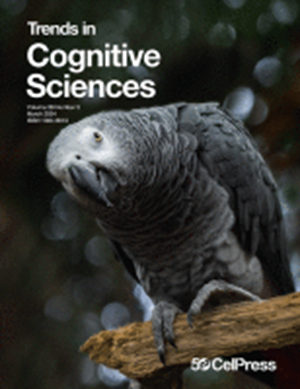解决误解需要的不仅仅是打击假新闻。
IF 17.2
1区 心理学
Q1 BEHAVIORAL SCIENCES
Trends in Cognitive Sciences
Pub Date : 2025-09-01
Epub Date: 2025-08-04
DOI:10.1016/j.tics.2025.07.002
引用次数: 0
摘要
错误信息研究的重点应该扩大到“假新闻”之外,以了解人们如何产生误解并做出错误的决定。新的研究方向包括:(1)研究精英的虚假声明和准确但误导性的内容;(ii)除了信念和分享之外,还测量行为结果;(三)重新评估这些背景下的现有干预措施。本文章由计算机程序翻译,如有差异,请以英文原文为准。
Addressing misperceptions takes more than combating fake news.
Misinformation research should broaden its focus beyond 'fake news' to understand how people develop misperceptions and make misinformed decisions. New research directions include: (i) studying false claims from elites and accurate-but-misleading content; (ii) measuring behavioral outcomes in addition to belief and sharing; and (iii) reevaluating existing interventions in these contexts.
求助全文
通过发布文献求助,成功后即可免费获取论文全文。
去求助
来源期刊

Trends in Cognitive Sciences
医学-行为科学
CiteScore
27.90
自引率
1.50%
发文量
156
审稿时长
6-12 weeks
期刊介绍:
Essential reading for those working directly in the cognitive sciences or in related specialist areas, Trends in Cognitive Sciences provides an instant overview of current thinking for scientists, students and teachers who want to keep up with the latest developments in the cognitive sciences. The journal brings together research in psychology, artificial intelligence, linguistics, philosophy, computer science and neuroscience. Trends in Cognitive Sciences provides a platform for the interaction of these disciplines and the evolution of cognitive science as an independent field of study.
 求助内容:
求助内容: 应助结果提醒方式:
应助结果提醒方式:


